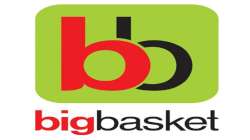Tata may buy majority stake in Alibaba-backed BigBasket
Tata Group may buy majority stake of upto 80 per cent in India's online grocery store BigBasket which is currently backed by China's Alibaba Group Holding Ltd.

Tata Group may buy majority stake of upto 80 per cent in India's online grocery store BigBasket which is currently backed by China's Alibaba Group Holding Ltd. According to Bloomberg, Tata, which is in talks to buy majority stake in BigBasket may value at $1.6 billion while Mint reported that it can buy upto 80 per cent stake in online grocery store.
The pandemic has seen big Indian business expanding their forte in varioous other business. As more people shifted to online shopping be it clothing or food, industrialists in India are now eyeing these sectors to invest more.
Earlier in September, a new report said on Friday that online grocery is going to be the next battleground for growth, expanding to over $18 billion by 2024.
ALSO READ | Flipkart partially spins off PhonePe, Binny Bansal to join board of fintech co
According to a joint report by a joint initiative by Bengaluru-based market consulting firm RedSeer and Bigbasket (Brand Intelligence), driven by the significant rise in organic adoption during Covid-19, eGrocery has been on a surge with clocking 1.7 times in gross merchandise value (GMV) in June this year as compared to January.
Online grocery will remain steady for the rest of the year to reach more than $3 billion, the report mentioned.
"The industry has seen more than 70 per cent ARR (annual recurring revenue) jumps in the last quarter across categories. This brings the opportunity to serve a larger set of customers, and some challenges with it," said Hari Menon, co-founder and CEO of BigBasket.
The report found that demand for comfort foods like noodles and cookies, immunity boosters like lemon and hygiene products like sanitizers picked up after the pandemic while essentials remained strong.
Snacks and branded foods grew by 5 per cent quarterly pre-Covid, however growth jumped to 75 per cent in the June quarter. Within snacks and branded foods, biscuits and cookies was the largest sub-category and grew the most in Q2.
Beverages grew by 2 per cent quarterly pre-Covid, however growth jumped to 50 per cent in Q2.
"Personal Care grew by 5 per cert quarterly pre-Covid but jumped to 24 per cent in Q2 due to Covid.
"We have observed that traditional brands which pivoted quickly to be digitally ready brands have seen 2x+ jump in sales compared to offline brands. We are excited to have this opportunity to serve the ecosystem," said Anil Kumar, founder and CEO of consulting firm RedSeer. Home utilities grew by 6 per cent quarterly pre-Covid but jumped to 11 per cent in Q2.
Within home utilities, detergents and dishwash were the largest sub-category but grew the least in the last quarter. According to the report, home utilities were not severely affected by the pandemic.
ALSO READ | Nestle to spend USD 3.6 billion over next 5 years to cut carbon footprint